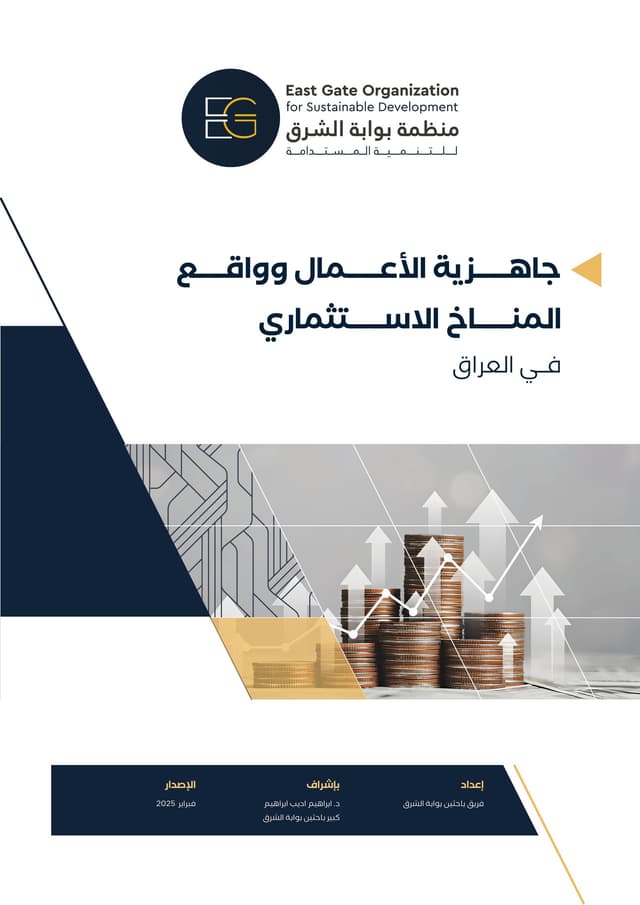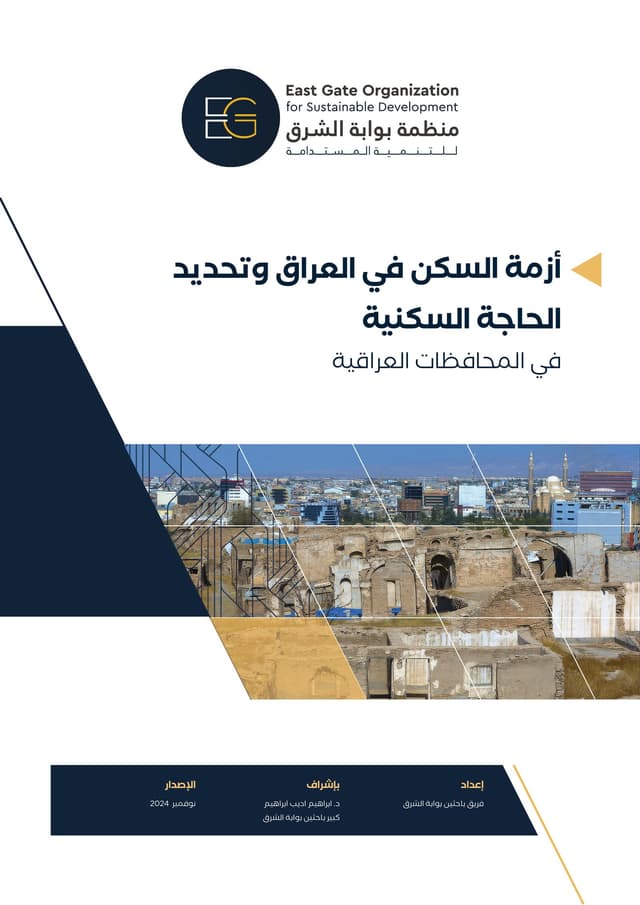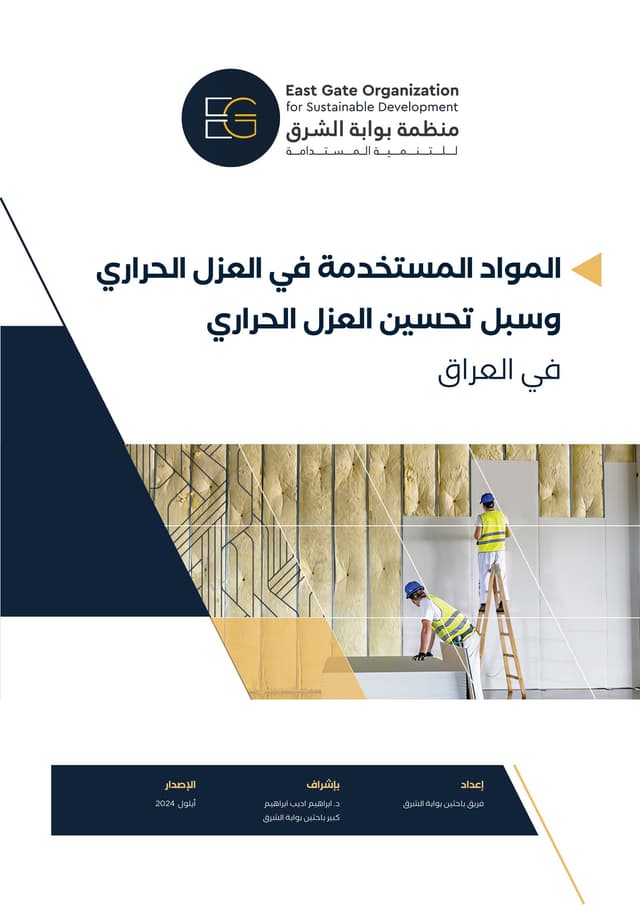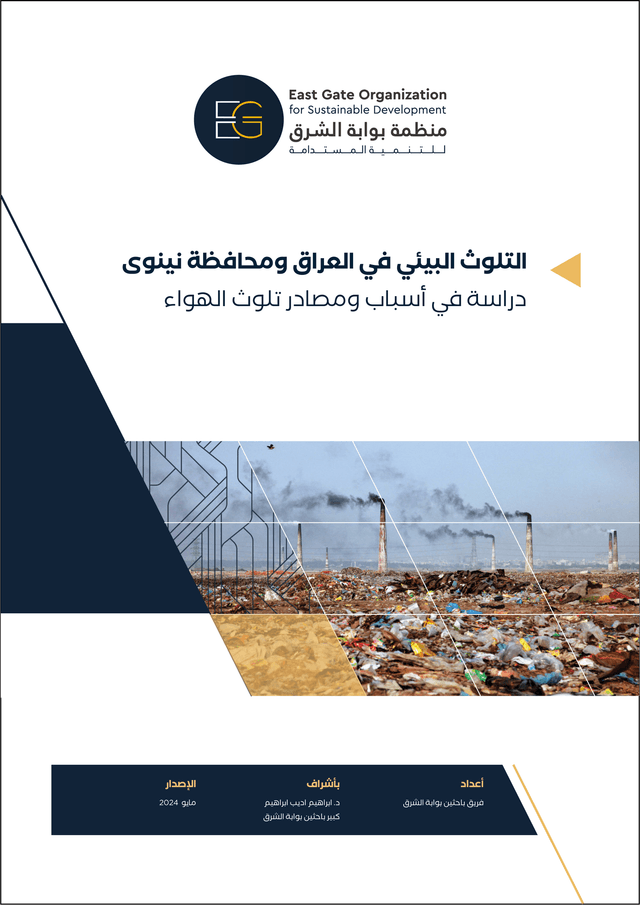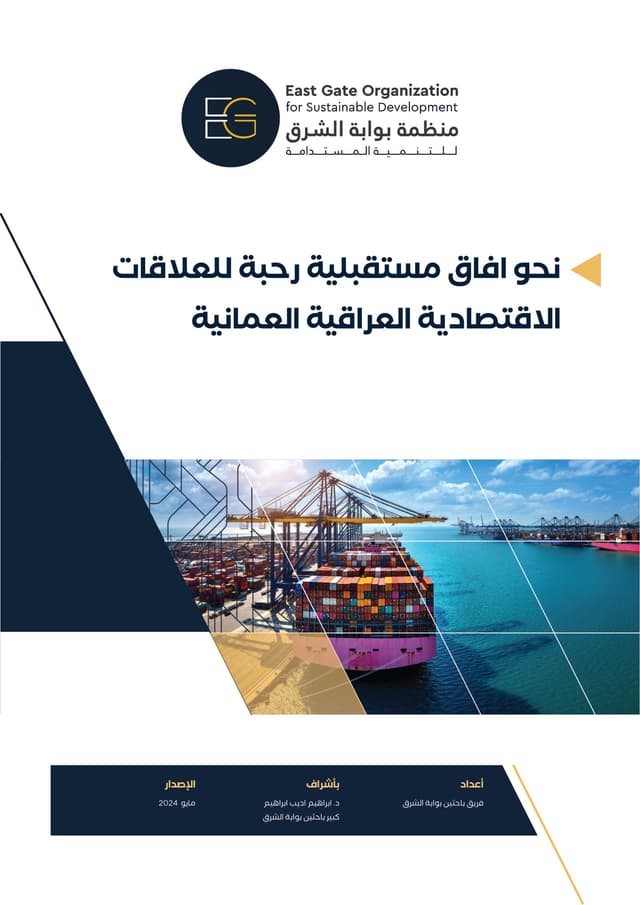This study provides an in-depth analysis of the obstacles to foreign investment in Iraq, which are related to three main areas: the security and political situation, the level of corruption, and the legal, administrative, and service challenges. The report indicates the fragility of security and political stability and the prevalence of corruption, creating an unfavorable environment for investment. Additionally, administrative procedures are characterized by complexity and high costs, which further complicates attracting foreign investments to Iraq.
To improve the climate for foreign investment in Iraq, the study suggests the following recommendations:
Enhancing Security and Political Stability: The government should work to improve the security and political conditions by combating terrorism and strengthening political stability to ensure a safer environment for investors.
Combating Corruption: Implementing rigorous reform programs to combat corruption and enhance transparency in all aspects of government and companies, which would help build trust among foreign investors.
Simplifying Administrative Procedures: Developing policies and legal procedures to facilitate investment processes and reduce bureaucracy. This includes easing registration and licensing procedures and lowering associated fees.
Improving Infrastructure and Services: Investing in the improvement of essential infrastructure such as roads, electricity, and communication services, in addition to developing necessary logistics services to support investments.
Providing Incentives for Foreign Investment: Offering attractive financial and tax incentives to attract foreign investors, such as tax reductions on investments in specific sectors or priority areas.
These recommendations aim to create a more attractive and competitive investment environment in Iraq, contributing to sustainable economic growth.
